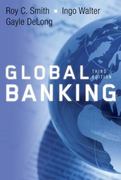
5. You deposit $300 in an account earning 5% interest compounded annually. How much will you have in the account in 10 years? 6. How much will in M y: SE AS Co. g g D D D ore.com/mathinsociety/2.5/MathinSociety.pdf maturity in 5 years. How much interest will you earn? 3. A T-bill is a type of bond that is sold at a discount over the face value. For example suppose you buy a 13-week T-bill with a face value of $10,000 for $9,800. This means that in 13 weeks, the government will give you the face value, earning you $200. What annual interest rate have you earned? 4. Suppose you are looking to buy a $5000 face value 26-week T-bill. If you want to earn at least 1% annual interest, what is the most you should pay for the T-bill? 5. You deposit $300 in an account earning 5% interest compounded annually. How much will you have in the account in 10 years? 6. How much will $1000 deposited in an account earning 7% interest compounded annually be worth in 20 years? 7. You deposit $2000 in an account earning 3% interest compounded monthly a. How much will you have in the account in 20 years? b. How much interest will you earn? 8. You deposit $10,000 in an account earning 4% interest compounded monthly. How much will you have in the account in 25 years? b. How much interest will you earn? a 9. How much would you need to deposit in an account now in order to have $6,000 in the account in 8 years? Assume the account earns 6% interest compounded monthly 10. How much would you need to deposit in an account now in order to have $20,000 in the account in 4 years? Assume the account earns 5% interest. You deposit S200 each month into an account caming 3% interest compounded O 49 7. You deposit $2000 in an account earning 3% interest compounded monthly. a. How much will you have in the account in 20 years? b. How much interest will you earn? 5. You deposit $300 in an account earning 5% interest compounded annually. How much will you have in the account in 10 years? 6. How much will in M y: SE AS Co. g g D D D ore.com/mathinsociety/2.5/MathinSociety.pdf maturity in 5 years. How much interest will you earn? 3. A T-bill is a type of bond that is sold at a discount over the face value. For example suppose you buy a 13-week T-bill with a face value of $10,000 for $9,800. This means that in 13 weeks, the government will give you the face value, earning you $200. What annual interest rate have you earned? 4. Suppose you are looking to buy a $5000 face value 26-week T-bill. If you want to earn at least 1% annual interest, what is the most you should pay for the T-bill? 5. You deposit $300 in an account earning 5% interest compounded annually. How much will you have in the account in 10 years? 6. How much will $1000 deposited in an account earning 7% interest compounded annually be worth in 20 years? 7. You deposit $2000 in an account earning 3% interest compounded monthly a. How much will you have in the account in 20 years? b. How much interest will you earn? 8. You deposit $10,000 in an account earning 4% interest compounded monthly. How much will you have in the account in 25 years? b. How much interest will you earn? a 9. How much would you need to deposit in an account now in order to have $6,000 in the account in 8 years? Assume the account earns 6% interest compounded monthly 10. How much would you need to deposit in an account now in order to have $20,000 in the account in 4 years? Assume the account earns 5% interest. You deposit S200 each month into an account caming 3% interest compounded O 49 7. You deposit $2000 in an account earning 3% interest compounded monthly. a. How much will you have in the account in 20 years? b. How much interest will you earn









